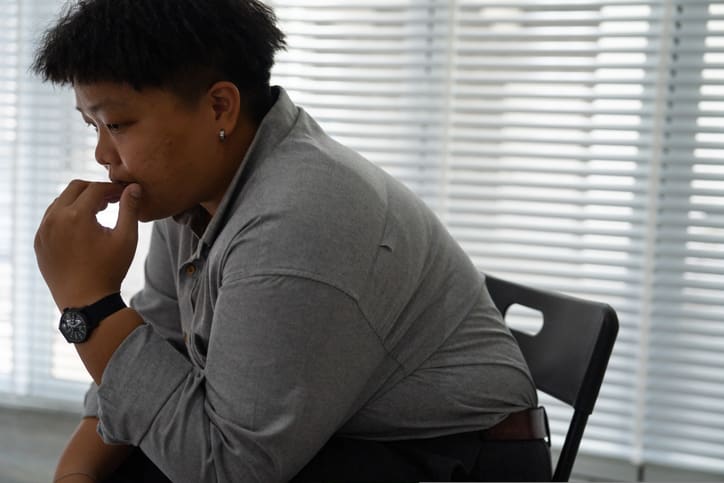You may think you know what substance abuse looks like, but it isn’t always easy to spot. People struggling with addiction often work hard to hide their struggles, making it difficult to recognize when something is wrong. But ignoring the warning signs can delay getting the help that’s needed.
If you’re worried about your own relationship with drugs or alcohol, or you suspect a loved one may be struggling, learning to identify the signs of a substance use disorder is the first step toward change.
When it comes to substance use disorders, denial often plays a big role. You might tell yourself, “I can stop anytime I want,” or think your loved one is just going through a phase and will get over it. This is especially true when the signs aren’t obvious. There may be subtle changes. Someone may still go to work, take care of family responsibilities, or appear “functional” while struggling behind the scenes.
Shame and fear can lead someone to hide their use, making it harder to spot the warning signs. Behaviors may be misinterpreted, and signs like mood swings or fatigue may be blamed on stress, lack of sleep, or other life challenges.
Physical Signs of Substance Abuse
The body often reveals what someone is going through, even if they try to hide it. Look for:
- Changes in appearance: Sudden weight loss or gain, bloodshot eyes, or poor hygiene.
- Frequent health issues: Ongoing fatigue, nausea, or unexplained injuries.
- Withdrawal symptoms: Shaking, sweating, or other signs of discomfort when they haven’t used the substance.
- Unusual smell: Alcohol, smoke, or chemical odors on their breath, clothing, or belongings.
Emotional Signs of Substance Abuse
Substance use often impacts emotional well-being, leading to noticeable changes in mood and personality. Common signs include:
- Mood swings: Sudden shifts from irritability or anger to euphoria.
- Anxiety or paranoia: Constant worry or a sense of being on edge.
- Depression: Persistent sadness, hopelessness, or lack of motivation.
- Lying or defensiveness: Becoming secretive or overly defensive when asked about their behavior.
Behavioral Signs of Substance Abuse
Pay attention to how someone’s actions and habits change. Behavioral signs may include:
- Neglecting responsibilities: Missing work, skipping school, or ignoring family obligations.
- Isolation: Spending less time with loved ones or avoiding social activities.
- Financial issues: Borrowing money frequently or struggling to pay bills due to spending on substances.
- Risky behavior: Driving under the influence, engaging in unsafe activities, or getting into legal trouble.
Substance use doesn’t just affect the person struggling. It can ripple through their relationships. If your loved one has a substance use disorder, you might notice:
- Broken trust: Dishonesty about where they’ve been or how they’re spending money.
- Conflict: Increased arguments or tension in your relationship.
- Emotional distance: They may seem withdrawn, distracted, or uninterested in connecting.
If you’re the one struggling, you may find yourself pulling away from loved ones because of guilt or fear of being judged. These feelings are normal, but they can also deepen the isolation that makes recovery harder.
Questions to Ask If You’re Unsure
Sometimes, the signs of substance abuse aren’t crystal clear. If you’re questioning whether you or someone you love has a problem, ask yourself:
- Are their behaviors significantly different than they used to be?
- Are substances being used to cope with stress, pain, or emotions such as anxiety or depression?
- Have there been negative consequences like missed work, relationship issues, or health problems?
If you’re answering “yes” to these questions, it may indicate that there is the possibility of a substance use disorder.
What to Do If You Recognize The Signs
Here are some steps to consider if your loved one is showing signs of a substance use disorder:
- Talk about it: Starting the conversation can be tough, but it’s an essential first step. When approaching your loved one, be compassionate and nonjudgmental. Avoid accusations or confrontations, as these can cause defensiveness.
- Seek professional help: Having a substance use disorder often requires professional support. Contact Twin Lakes Recovery Center in Monroe, Georgia, for guidance. Our compassionate team is here to provide the support, tools, and care needed to help you or your loved one find a path to healing.
- Reach out for support: Consider therapy, which can help uncover underlying issues contributing to substance use. Join a support group, such as AA or NA, whether you’re the one struggling or supporting a loved one.
- Create a safe environment: If you’re supporting someone else, focus on creating a supportive, understanding space. Encourage healthy coping mechanisms, such as exercise or journaling. Remove triggers, like alcohol or drugs, from the environment.
Why Early Recognition Matters
The earlier you recognize the signs of substance abuse, the sooner you can take action. Early intervention:
- Reduces the risk of severe health problems.
- Improves the chances of successful recovery.
- Helps rebuild trust and relationships before too much damage is done.
Whether you’re worried about your own substance use or supporting someone else, you don’t have to face it alone. Recognizing the signs of substance abuse is the first step, and reaching out for help is the next.




